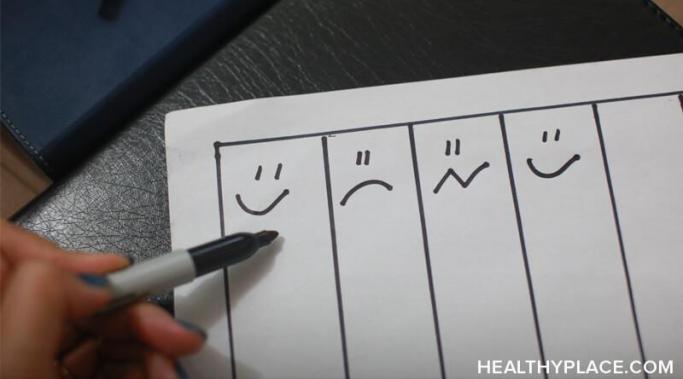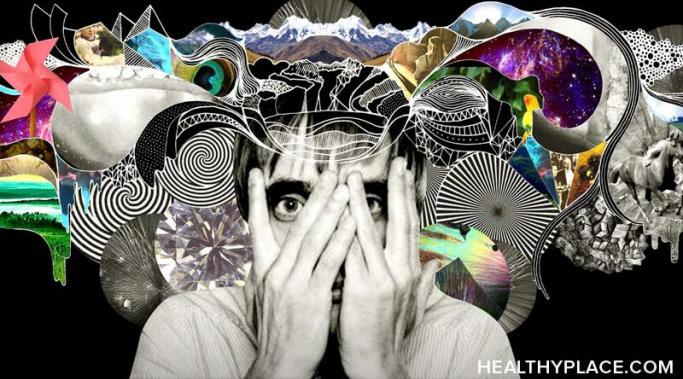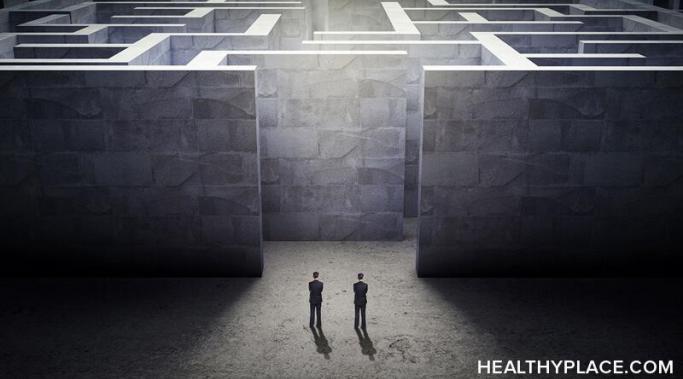Bipolar can wreck your work life. It's just a fact. It can. If you've ever had a severe episode of depression or mania/hypomania, you know this. But what do you do when bipolar disorder wrecks your work life. Here are a few ideas.
Impact of Bipolar
Today I'd like to say what I'm not thankful for: I'm not thankful for bipolar disorder. Now that Thanksgiving is over, and people have said what they are thankful for, I want to focus on this for a minute. This isn't meant to be negative but, rather, simply a fact. While I know some feel differently, for me, bipolar disorder is something I'm just not thankful for.
Anger can affect bipolar disorder. In fact, the relationship between anger and bipolar disorder is bidirectional: bipolar disorder can affect anger and anger can affect bipolar disorder. As a person with bipolar disorder, I find anger and its effects scary.
Intrusive thoughts are something I deal with along with bipolar disorder, although I should say that intrusive thoughts are not, specifically, a known symptom of the disorder. That said, intrusive thoughts seem to be something many with bipolar disorder deal with. Here, I discuss what intrusive thoughts are and why people with bipolar disorder may experience intrusive thoughts.
Money stress in bipolar disorder is a very real thing and stress like this can actually make bipolar symptoms worse. In my last post, "Money Worries in Bipolar Disorder", I outlined why people with bipolar disorder have so many money worries and how horrible and drastic they can be. In this post, I'm going to talk about how to fight money stress in bipolar disorder.
People with bipolar disorder often have money worries. This isn't limited to those with bipolar disorder, of course, money worries are something that many people can identify with, but worrying about money happens more for those with bipolar disorder and I think there are two main reasons why.
I'm tired of feeling sorry that I have bipolar disorder. I don't mean feeling sorry for myself -- that's a different thing -- I mean feeling sorry for the very fact that I am sick. I mean feeling sorry for the very fact that I am the one with the serious mental illness. And this feeling sorry about bipolar disorder is wearing on one's being. I, for one, don't want to feel sorry that I have bipolar disorder anymore.
For many of us, we deal with bipolar disorder every day and it often feels like dealing with bipolar disorder takes up way too much time. I know I spend a significant amount of time thinking about how and doing things to mitigate bipolar’s effects. I have to. It’s how I function as well as I do (however moderate that may be). And when I look at what I get done in a day, it seems painfully clear that dealing with bipolar disorder takes up too much time.
Bipolar depression can last for years. Now, I know, bipolar disorder is a cyclical illness – i.e. you cycle through various states like hypomania, mania, depression and euthymia (no symptoms). This is true. But it is also true that a person can get trapped in one of the mood states. This isn’t necessarily the most common manifestation of bipolar disorder, but it does happen. And usually, if you’re trapped in a particular mood state, it’s bipolar depression that lasts for years.
Attempting to accomplish big goals when you have bipolar disorder can end very badly. I know this; it has happened to me. But some big tasks must get done. Sometimes we have to move halfway across the country. Sometimes we have a six-month-long project for work. Sometimes we have to raise a child. Big goals don’t go away just because a person has bipolar disorder. So here are some tips I’ve learned on how to accomplish big goals with bipolar disorder.









